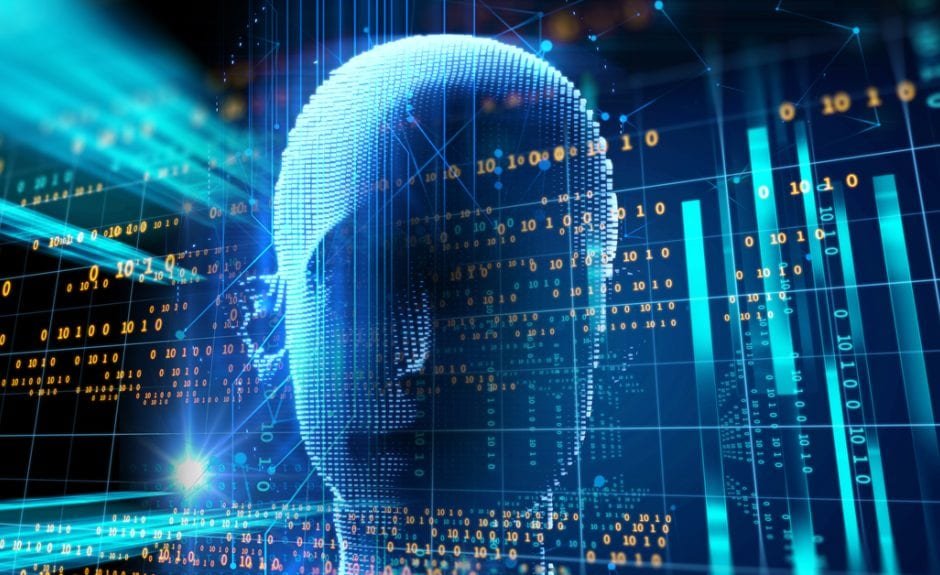Science
Technology Revolutionizes Daily Life and Business Operations

Technology has become an integral part of everyday life, influencing how individuals live, work, and interact. From the moment people wake up and check their phones to the array of smart devices they utilize throughout the day, technology is deeply woven into the fabric of modern existence. As advancements continue to emerge at a rapid pace, several trends stand out, shaping the future of both personal and professional spheres.
The Age of Artificial Intelligence
Artificial Intelligence (AI) is leading this transformative wave. Once relegated to the realm of science fiction, AI now powers technologies like voice assistants, chatbots, self-driving vehicles, and automated manufacturing processes. These systems can analyze vast quantities of data to identify patterns and make decisions with speed and accuracy that often surpass human capabilities.
In healthcare, AI aids medical professionals in early disease detection and the formulation of personalized treatment plans. In finance, AI tools detect fraudulent activities in real time, enhancing security for both businesses and consumers. In the realm of entertainment, AI algorithms curate content based on user preferences, creating a more personalized experience. As AI technology evolves, the distinction between human and machine intelligence continues to blur.
The Internet of Things (IoT) and Connectivity
The Internet of Things (IoT) represents a rapidly expanding network of interconnected devices, from smartphones to industrial machinery. This connectivity has given rise to smart home environments, featuring self-adjusting thermostats, voice-activated lighting, and real-time security systems. In industrial settings, IoT devices streamline operations, reduce waste, and facilitate predictive maintenance, resulting in substantial cost savings for companies.
However, the proliferation of connected devices raises significant security and privacy concerns. The more data shared among devices, the greater the risk of unauthorized access and breaches, prompting both consumers and businesses to prioritize robust security measures.
Cloud computing has revolutionized the way organizations store and access data. Moving away from traditional physical servers, businesses now leverage cloud platforms for scalable services and cost-effective solutions. This shift underpins the digital economy, supporting everything from data analytics to software development. The increasing adoption of hybrid and multi-cloud strategies offers organizations greater flexibility in managing their IT resources.
The rollout of 5G technology marks a leap into a new era of fast and reliable communication. With data transfer speeds potentially up to 100 times faster than 4G, 5G enables innovations such as real-time remote surgeries and fully autonomous vehicles. For consumers, this means instant downloads and seamless streaming experiences. For industries, enhanced connectivity facilitates smart factories and advanced logistics systems.
Cybersecurity in a Digital Age
As technology advances, so do cyber threats. Individuals and organizations face an escalating risk from hackers and malware, necessitating a robust cybersecurity framework. Modern cybersecurity now encompasses advanced encryption, multi-layered defenses, and AI-driven threat detection. Additionally, user awareness remains critical; practices such as strong passwords and multi-factor authentication are essential for personal security in the digital landscape.
Sustainability has emerged as a central theme in technological innovation. Green technology aims to mitigate environmental impact while enhancing efficiency. Innovations such as solar energy systems, electric vehicles, and smart grids exemplify the role of technology in fostering positive environmental change. Many tech companies are adopting carbon-neutral practices and utilizing recyclable materials, reflecting a commitment to responsible innovation.
The Future: Human and Machine Collaboration
The narrative surrounding technology is shifting from one of fear—where machines dominate human roles—to a collaborative vision where technology enhances human potential. AI and automation are increasingly handling mundane tasks, freeing individuals to engage in more creative and strategic endeavors. In workplaces, AI tools empower employees to make data-driven decisions and optimize processes, fostering an environment conducive to innovation.
As technology continues to evolve, the partnership between humans and machines will define the future landscape, increasing productivity and encouraging continuous learning. Those who embrace this new synergy are likely to thrive in the digital age.
In summary, technology is not merely an addition to daily life; it is a necessity that shapes every aspect of modern existence. From AI and IoT to cloud computing and green technology, the landscape is constantly evolving. With this evolution comes a responsibility to innovate ethically, protect privacy, and ensure that technological advancements benefit all of humanity.
-

 Science1 week ago
Science1 week agoInventor Achieves Breakthrough with 2 Billion FPS Laser Video
-

 Top Stories2 weeks ago
Top Stories2 weeks agoCharlie Sheen’s New Romance: ‘Glowing’ with Younger Partner
-

 Entertainment2 weeks ago
Entertainment2 weeks agoDua Lipa Aces GCSE Spanish, Sparks Super Bowl Buzz with Fans
-

 Business2 weeks ago
Business2 weeks agoTyler Technologies Set to Reveal Q3 Earnings on October 22
-

 Entertainment2 weeks ago
Entertainment2 weeks agoMother Fights to Reunite with Children After Kidnapping in New Drama
-

 Entertainment2 weeks ago
Entertainment2 weeks agoRed Sox’s Bregman to Become Free Agent; Tigers Commit to Skubal
-

 World2 weeks ago
World2 weeks agoR&B Icon D’Angelo Dies at 51, Leaving Lasting Legacy
-

 Health2 weeks ago
Health2 weeks agoCurium Group, PeptiDream, and PDRadiopharma Launch Key Cancer Trial
-

 Health2 weeks ago
Health2 weeks agoNorth Carolina’s Biotech Boom: Billions in New Investments
-

 Health2 weeks ago
Health2 weeks agoCommunity Unites for 7th Annual Into the Light Walk for Mental Health
-

 Science2 weeks ago
Science2 weeks agoNorth Carolina’s Biotech Boom: Billions Invested in Manufacturing
-

 Top Stories2 weeks ago
Top Stories2 weeks agoDisney+ Launches Chilling Classic ‘Something Wicked’ Just in Time for October









